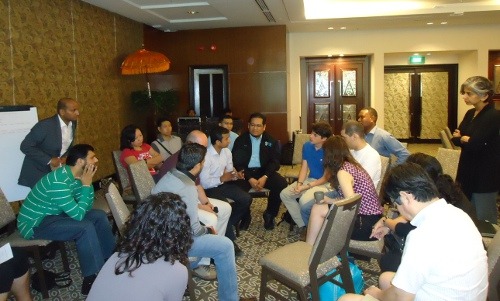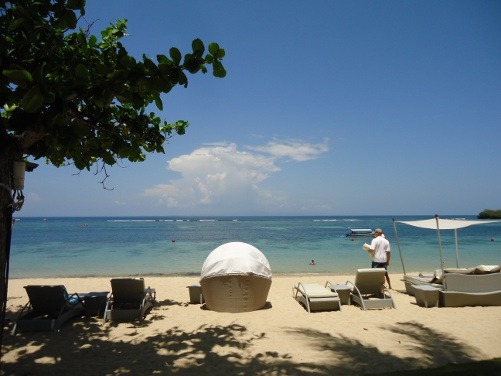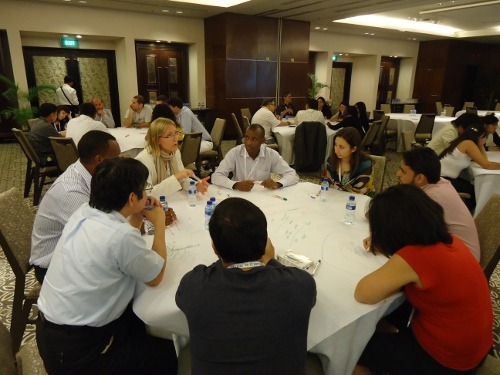The warmth of the genuinely friendly and hospitable Balinese people in the famous Indonesian archipelago of Bali together with the sunny and warm tropical weather emanating form the Bali sea was a clear indication the 8th Global Internet Governance Forum (IGF) would be fruitful and lead to positive outcomes. The tone had already been set by the environment.
The IGF capacity building pre-event organized by Internet Society had all global ISOC Ambassadors and ISOC fellows from the Asian Pacific region participate in topics of their interests that had an impact on the Internet in their respective regions. The discussions took the un-conference format where every individual from Australia to Argentina, from Kenya to Costa Rica, from Vanuatu to Uganda, from Venezuela to Russia, all felt comfortable and they could contribute without pressure.
Inside the Fishbowl
The discussions were done through the interesting and unique fishbowl method where seven debaters sat in the middle of a two tier circle, with an eight slot available for the other members sited outside the center ring to fill if they felt the need to contribute to the debate. Only those on the inside circle could contribute, and one had to exit the circle through peer pressure and join the outside circle to maintain the balance to seven debaters if the eight slot was occupied. A prefect would ensure fishbowl rules were followed; and a scribe would note all the key-points that emerge form the debate, but neither of them could contribute to the discussions.

A Fishbowl in session. Extream right, Ms. Toral Cowieson, Senior Director, Internet Leadership was the Prefect
Interesting debates from different Internet related problems from across the globe were tackled, some of them being
- How do we create contacts within local stakeholders, running projects for the chapter and extending support to local community.
- Best practices in financial management of ISOC chapters including fund-raising and grants
- Setting ISOC chapter’s objectives and goals
- If we work on a project it would be … with … and jointly we can achieve …
- What is my role in my chapter to shape up the future of Internet in my community … and what do I need to do …
- ISOC chapters contribute most effectively to the Internet Governance if …
- Online Intermediaries and human rights : Embracing transparency, accountability and Trustin the Digital era.
- What is preventing effective Cyber security in developing countries? Are policymakers not aware of the severity of the issues and multitude of responses required (people, process and tech), and as much haven’t made Cyber security a national priority.
- Use of the Internet to support creative economy and sustainable development
- Child safety online: What is the role of parents in ensuring that children are safe online?
- Best practices in building community of learning. How do we create peer networks that build capacity building to Internet Governance?
The fishbowl is an interesting way of brainstorming and coming up with new ideas for contemporary problems that affect us. I consider this a key takeaway from the ISOC Ambassadorial program because we can use it in our local ISOC chapter meetings where all members will feel welcomed and encouraged to contribute. It can also be used in our day to day jobs , in meetings where we sometimes struggle to get members engaged.
The solution room.
This was a more interesting method of getting solutions for participants that had Internet related problems in their region. On the solution room, eight participants sat on a round-table and asked to write down their problem in a paper glued infront of each one of them. Participants then moved clockwise one position, but left their problem behind. Now the problem became the problem of the whole group, where they brainstormed around it as the members sited infront of the problem scribed the solutions offered. All the problems would be solved clockwise until the last. Each member would then take the solution for adoption in solving the respective problem presented.
Overal, the capacity building workshops helped chapters identify challenges, strengths and opportunities for growth and expansion. I hope chapters can feed the outcomes into their chapter activities in their respective countries.


